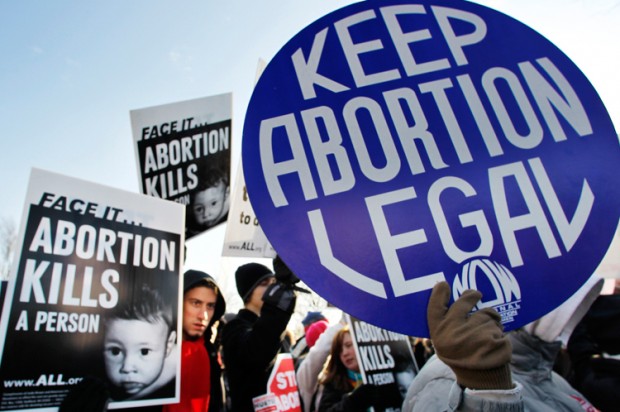In the New York Times on Wednesday, Joshua Lang took a detailed look at the work of demographer Diana Greene Foster, who has spent close to five years studying what happens to women who are denied abortions. Foster and a team of researchers compared women who were able to terminate their pregnancies close to the cut-off date, usually around 20 weeks, to demographically similar women who wanted an abortion but — often because their pregnancies exceeded gestational limits for the procedure — were turned away by clinics.
As Foster discovered, these two groups of women often experienced radically different outcomes. Women who were denied abortions generally fared worse in terms of physical health and financial security; they were also more likely to stay in relationships with abusive partners than those who were able to end unwanted pregnancies.
But Foster also found that a majority of women who wanted to terminate a pregnancy but couldn’t came to love the child, with only 5 percent of these women reporting that they wish they had never had the child, according to Foster’s data.
But rather than confirming conservative antiabortion arguments (“Women do regret abortion,” is a popular refrain), Katie Watson, a bioethicist at Northwestern University’s Feinberg School of Medicine told the Times that Foster’s findings reveal what is essentially an adaptive trait: “It’s psychologically in our interest to tell a positive story and move forward. It’s wonderfully functional for women who have children to be glad they have them and for women who did not have children to enjoy the opportunities that afforded them.”
Foster agrees, saying the women in her study simply “adjusted” after being denied abortions.
Like a majority of the women in Foster’s study, S., a mother featured in Lang’s piece, also came to love her child after being denied an abortion (“She is more than my best friend, more than the love of my life”), but finds herself trapped in financially and emotionally challenging circumstances in line with Foster’s data. She is currently living with family, struggling to support herself and her 1-year-old daughter.
Foster has no doubt that S. loves her child, but wonders if things might not be different if she had been able to terminate the pregnancy as she intended, as Lang notes:
When women seek abortion, you have to ask yourself, Foster says, what is the alternative they are trying to avoid? And how might the life of a turnaway look if she’d had the abortion she sought? “You would need to look at the people who managed to get the abortion and find whether a woman who started out similarly is now in school, building a stable relationship, career or, possibly, that later she had a baby she was ready for.”
Ultimately, Foster’s research isn’t out to judge women, question a mother’s love for her child or set policy; instead, she wants to raise questions about choice and investigate how empowering women to control if, when and under what circumstances they have children impacts the conditions of their lives. Which, according to Foster’s and other research, is almost always for the better.
“Maybe women know what is in their own and their family’s best interest,” she said of the positive outcomes found among women who were able to terminate unwanted pregnancies. “They may be making a choice that they believe is better for their physical and mental health and material well-being. And they may be making a decision that they believe is better for their kids — the kids they already have and/or the kids they would like to have when the time is right.”

